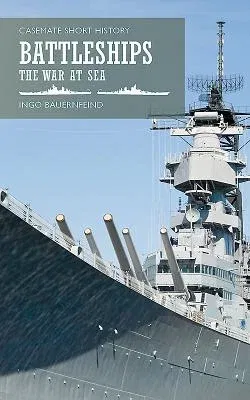Battleships conjure a golden age of naval history, when these floating
powerhouses ruled the waves, carrying the military might of their
respective countries around the globe.
The battleship was the ultimate embodiment of naval power during the
latter stages of the British Empire, with the Royal Navy the first to
build the dreadnought battleship in 1906. The new design, with a uniform
main battery and steam turbines making it faster and more accurate than
ever before, sparked a naval race with the German navy which culminated
in the Battle of Jutland in 1916, the only fleet-to-fleet naval battle
during the First World War. With major losses on both sides, and several
treaties during the inter-war years banning the construction of new
battleships, a new generation emerged only in the Second World War, with
Japan secretly creating Yamato and Musashi, two of the most powerful
battleships ever built.
World War Two saw the zenith of the battleship, with many pivotal
battles such as the battle of Denmark Strait during which the iconic
battleships HMS Hood was sunk, the second battle of Guadacanal and the
battle of Leyte Gulf to name but a few. The Germans, the Japanese, the
Royal Navy and the US Navy were locked in a titanic struggle across vast
distances, in which battleships for a time played a decisive role, until
the development of new aircraft carriers and growing use of torpedoes
began to make them obsolete. Since the 1990's, no battleship has seen
active service.
This accessible short history gives an expert overview of the history of
the battleship, looking at its origins, the role played by battleships
in both World Wars, famous ships and their stories, as well as the
weaponry and technology they employed.

